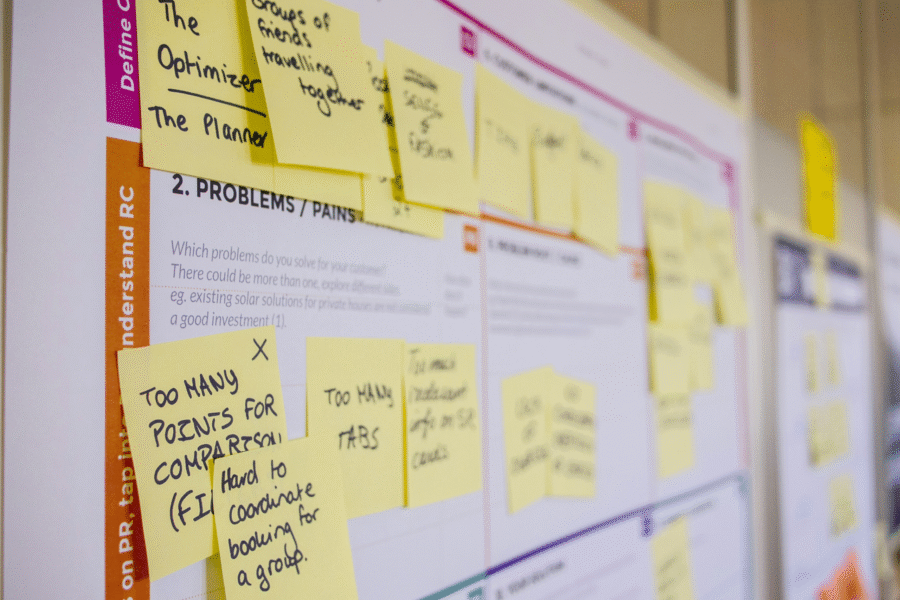Across most sectors, the role of technology and digitalization has become increasingly pivotal. At Proteus we have the privilege of working with clients across various engineering sectors including energy and infrastructure. This has given us a unique insight into how far progressed along the digital transformation journey different companies and sectors are. We have found that some older, more traditional companies in, for example, the energy sector have found themselves playing catch up. Whereas companies working on capital projects – in particular infrastructure – have witnessed a significant transformation with the adoption of digital solutions.
Gathering and accessing accurate data sits at the heart of this digital transformation. In this blog, we’ll explore how digitalization, combined with effective collaboration and data quality, is revolutionizing capital projects, aiding in on-time and on-budget project deliveries, highlighting some companies that are already reaping the benefits of these innovations.
Digital Transformation in Capital Projects
To make it clear what we mean by ‘digitalization’ or digital transformation in capital projects, we are referring to the integration of various technologies and data-driven solutions to streamline and optimize the project lifecycle. This digital transformation encompasses a wide array of tools and techniques, from Building Information Modeling (BIM) to project management software, IoT (Internet of Things) sensors, and artificial intelligence (AI). Some technologies that we see changing the game for project engineers include:
- A central hub for project management: Project management software is a fundamental component of digitization in capital projects. It streamlines project workflows, enhances communication, enables real-time monitoring, and provides valuable data insights.
- Efficient Planning and Design: One of the key benefits of digitalization is in the initial phases of project development. For instance, BIM enables project teams to create a detailed 3D model of the project, providing a holistic view that helps identify design flaws and conflicts early on. This not only ensures better planning but also minimizes costly changes during construction.
- Real-time Monitoring: IoT sensors monitor various aspects of a project in real-time. These sensors can track everything from equipment performance to environmental conditions, allowing project managers to make informed decisions promptly. This prevents unexpected delays and reduces the risk of cost overruns.
- Predictive Analytics: AI and machine learning algorithms are being employed to predict potential issues and bottlenecks in project execution. By analyzing historical data, these systems can forecast potential risks and suggest strategies to mitigate them, ultimately leading to smoother project delivery.
The Importance of Accurate Data and Collaboration
Access to accurate data is at the heart of successful digitalization in capital projects. However, it’s equally important to emphasize the significance of collaboration and sharing between silos and disciplines to ensure data quality over quantity. Collaboration involving multiple disciplines and stakeholders ensures that data is accurate, consistent, and reliable. Accurate data provides project managers with the information they need to make well-informed decisions. Whether it’s choosing the right construction materials or adjusting the project schedule, data-driven insights lead to better choices.
data-driven insights lead to better choices
This quality assurance is essential to prevent misinformation or misinterpretation of data, which could lead to costly mistakes. In addition, sharing insights and expertise from various disciplines is essential. When different teams work together, they can uncover innovative solutions and identify potential issues that might have been overlooked in isolation. This allows teams to streamline processes and reduce duplication of efforts. When everyone has access to the same data and works cohesively, project delivery becomes more efficient, reducing both time and cost.
By prioritizing accurate data, we see that project teams are more likely to mitigate risks effectively. Whether it’s predicting equipment failures or anticipating adverse weather conditions, having reliable data ensures that proactive measures can be taken. Moreover, with precise data, it’s easier to control project costs. By tracking expenses and resource allocation accurately, project managers can prevent budget overruns and ensure that the project stays on financial track.
Companies Leading the Way
Several forward-thinking companies working on capital projects have embraced digitalization and are experiencing remarkable improvements in project delivery.
- Aurecon: A global engineering and infrastructure advisory company, Aurecon uses digital platforms including Proteus. This facilitates data sharing among project teams, clients, and partners. By streamlining the management of project controls, the risk of overspending is reduced and everyone has access to the most up-to-date project information.
- Fluor Corporation: A global engineering and construction firm, Fluor has embraced digital twins—a virtual replica of physical assets. They use digital twins for better project visualization, analysis, and monitoring. This innovation has significantly reduced the chances of design clashes and has improved collaboration among project stakeholders.
- Bechtel: Bechtel, a construction and engineering giant, uses AI to analyze project data and predict potential issues. By identifying critical areas of concern early, Bechtel can proactively address them. This reduces the likelihood of costly delays and budget overruns.
In Conclusion
Digitalization is transforming the world of capital projects, offering innovative solutions to prevent projects from being delivered behind schedule and over budget. There are companies leading the way by leveraging digital tools and accurate data to achieve remarkable improvements in project delivery. As project engineers, embracing digitalization and ensuring access to reliable data is crucial for staying competitive and successful in the evolving landscape of capital projects. The future belongs to those who harness the power of technology to build a more efficient and cost-effective project management process.
About Proteus
Proteus developed by a Scottish-based tech company, Xergy Group, is an end-to-end project management solution developed for the energy and engineering consulting industries.
Proteus is industry-proven and enables consultancies to meet project demands across the full lifecycle, from proposal development to project delivery. With robust sales and project delivery modules, Proteus helps its customers win more business, increase efficiencies, manage expenditures, and improve project controls.
Critical workflows, automation, and controls are integrated into Proteus. These include opportunity evaluation, proposal building, resource planning, budget tracking and forecasting, real-time multi-level restricted dashboards, and project performance analytics.
Third-party integrations and customised solutions allow Proteus’ users, which include C-suite, project leads, and engineers, to get the exact software solution needed for their business.
We offer a free onboarding consultation service to ensure your company account is set up to your company’s needs.
How to get Proteus
Proteus operates under a software-as-a-service (SaaS) model. We offer Enterprise packages and flexible pricing solutions: contact our team to learn more.
We designed Proteus to be simple, and that means you can get up and running on Proteus without an IT team or support from a programmer. You will want to spend a bit of time configuring the admin console so that you have everything set up to suit your company structure, but it’s very intuitive and you don’t need a PhD in IT.
However, we want you to get the best out of what is a brilliantly powerful tool, so don’t hesitate to ask for our support. We have a team of product experts who are ready to help you with the configuration process, so get in touch today by filling out the form below:



